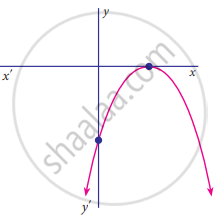Advertisements
Advertisements
प्रश्न
Zero of a polynomial is always 0
पर्याय
True
False
उत्तर
This statement is False.
Explanation:
Because zero of a polynomial can be any real number e.g., p(x) = x – 2, then 2 is a zero of polynomial p(x).
APPEARS IN
संबंधित प्रश्न
Verify whether the following zeroes of the polynomial, indicated against them.
p(x) = x2, x = 0
Verify whether the following zeroes of the polynomial, indicated against them.
p(x) = 2x + 1, `x = 1/2`
Find the zero of the polynomial in the following case:
p(x) = 3x – 2
Verify whether the indicated numbers is zeroes of the polynomials corresponding to them in the following case:
`g(x)=3x^2-2,` `x=2/sqrt3 2/sqrt3`
Verify whether the indicated numbers is zeroes of the polynomials corresponding to them in the following case:
`f(x) = lx + m , x = - m/1`
Find the zero of the polynomial of the following:
q(y) = 2y – 3
Verify whether the following are zeros of the polynomial, indicated against them, or not
p(x) = (x + 3) (x – 4), x = −3, x = 4
Find the number of zeros of the following polynomial represented by their graph

If `p(x) = x^2 - 2sqrt(2)x + 1`, then `p(2sqrt(2))` is equal to ______.
Find p(0), p(1), p(–2) for the following polynomial:
p(x) = 10x – 4x2 – 3
